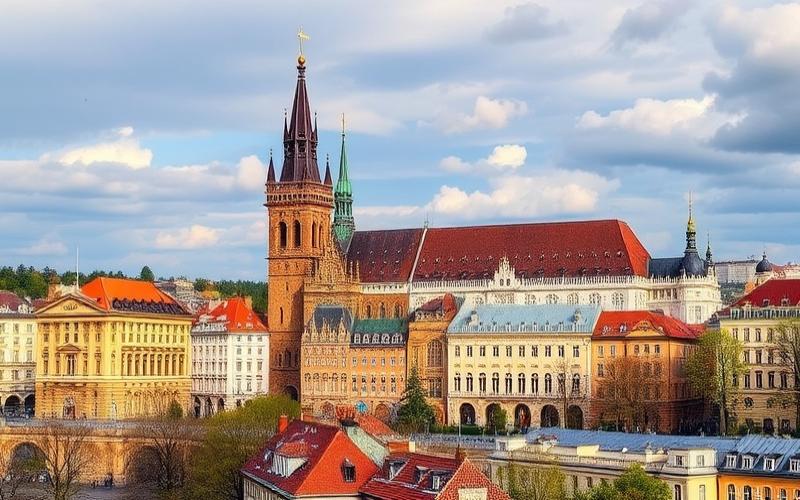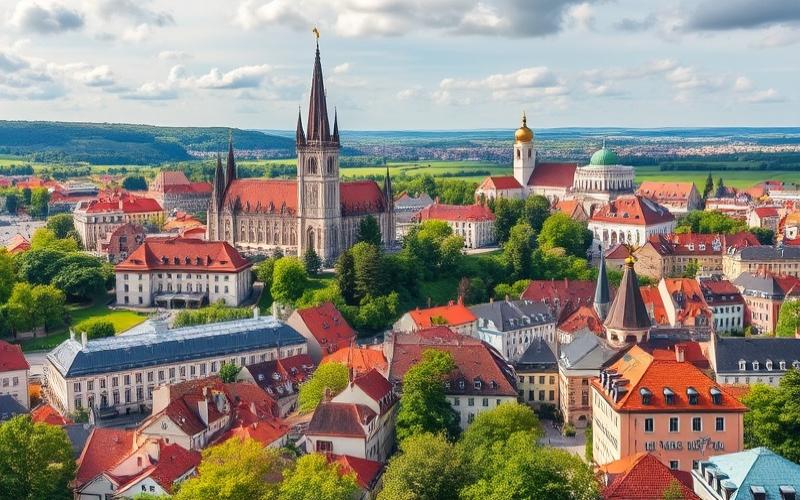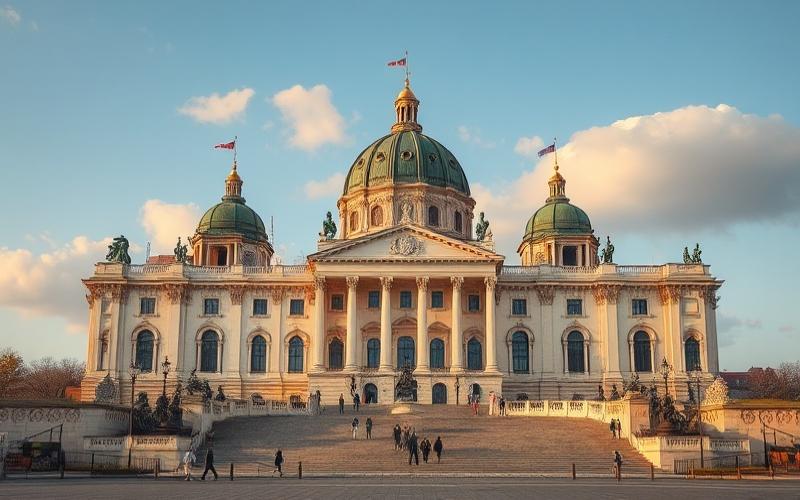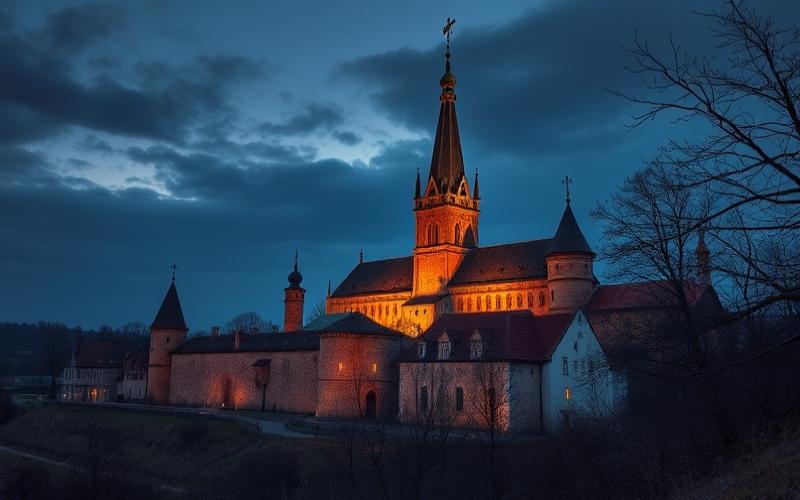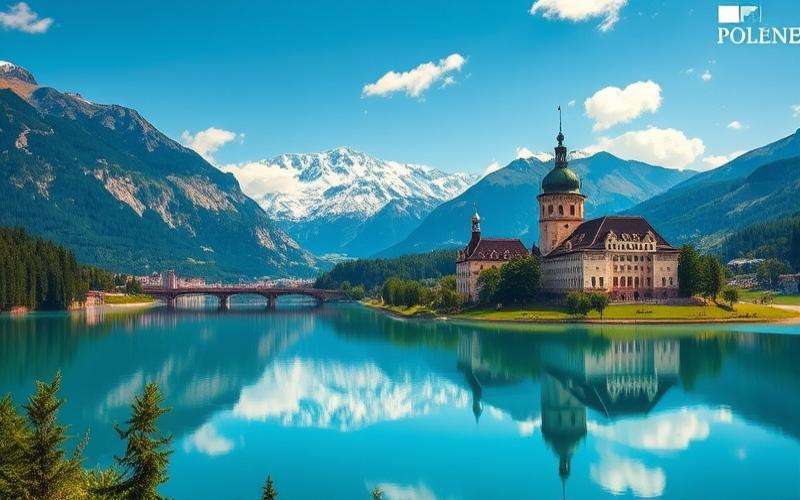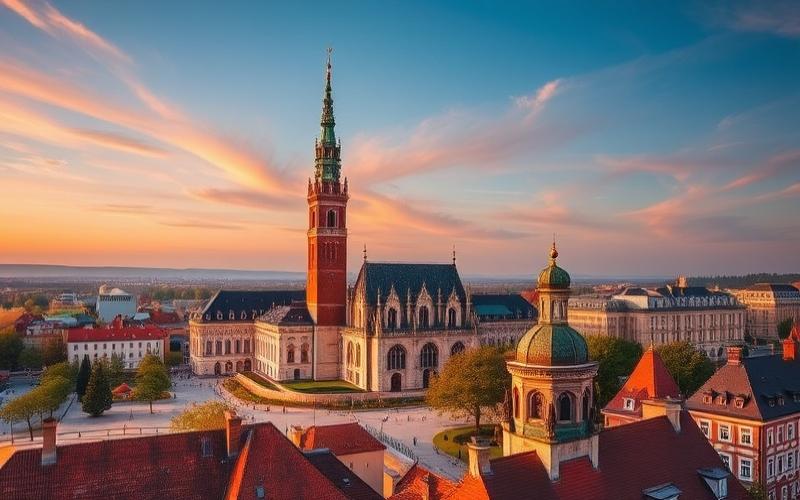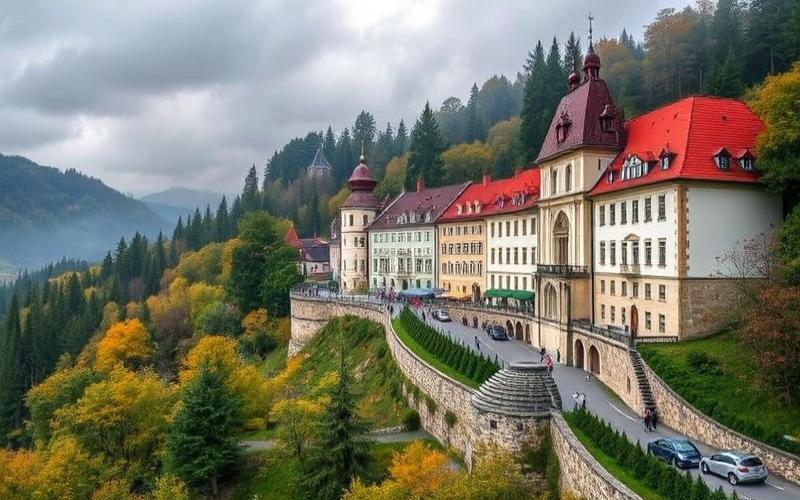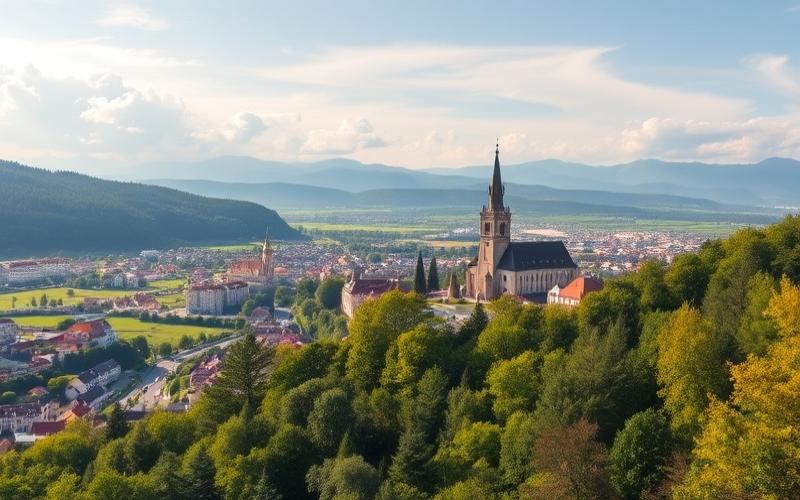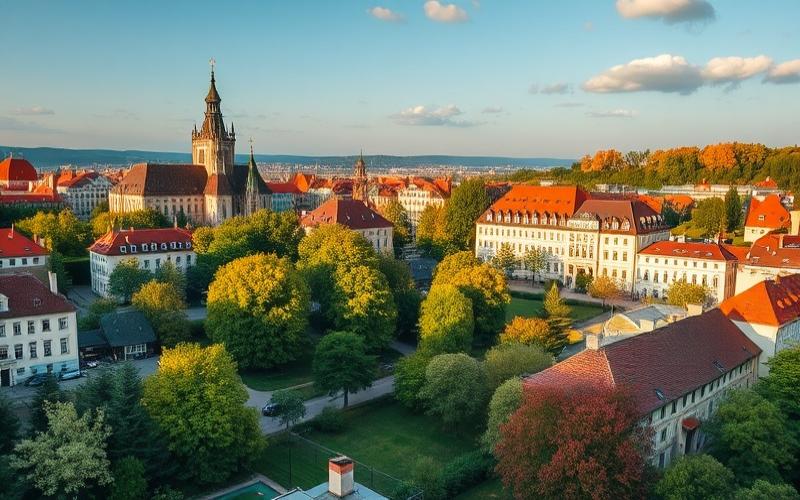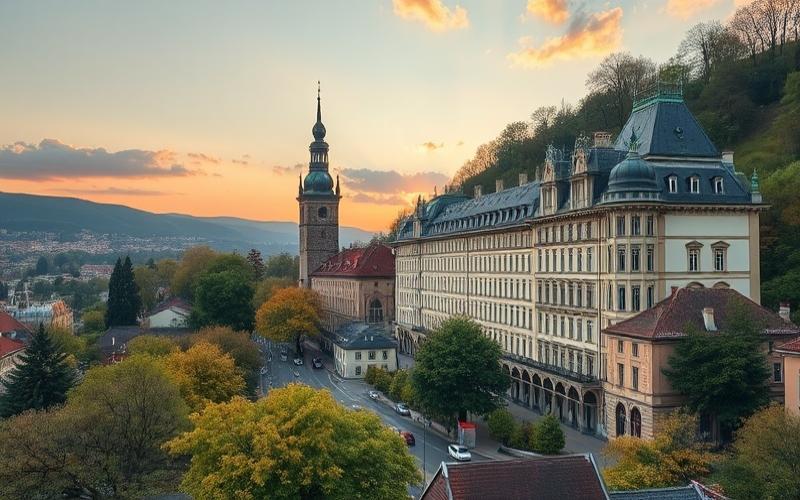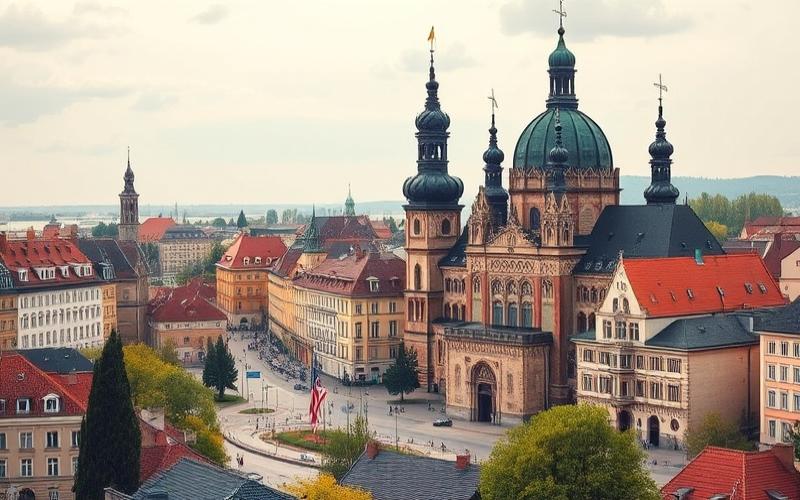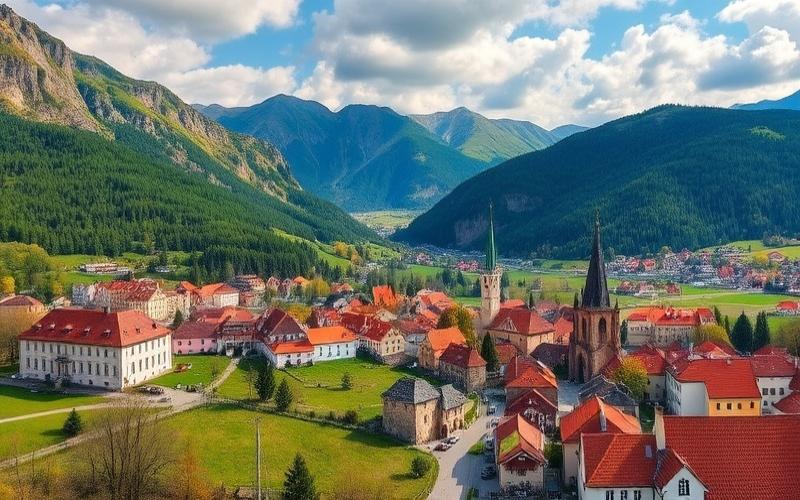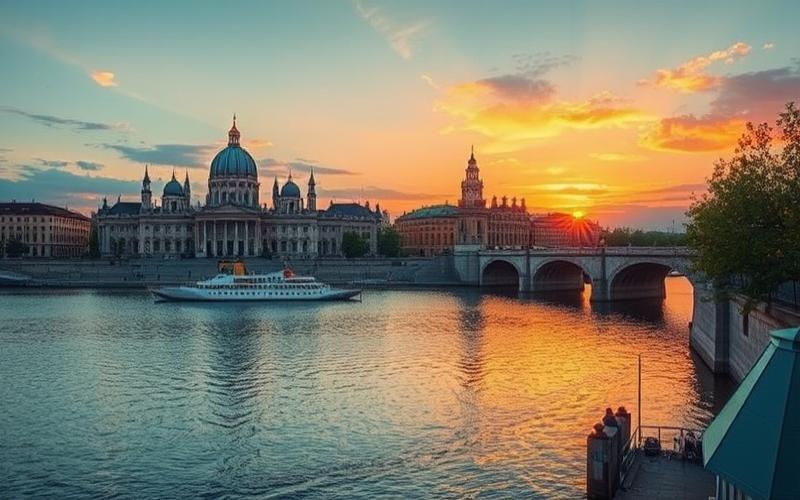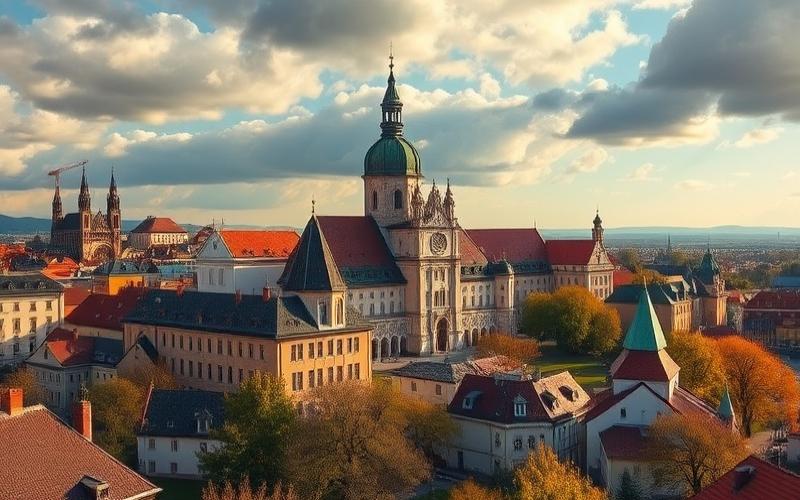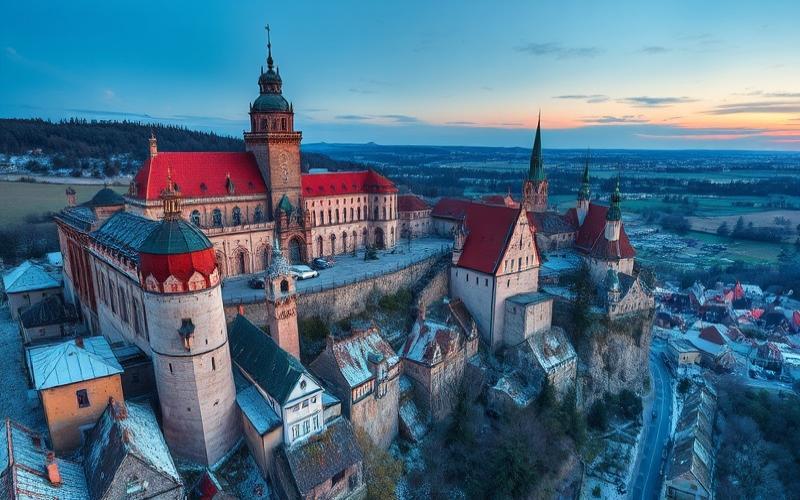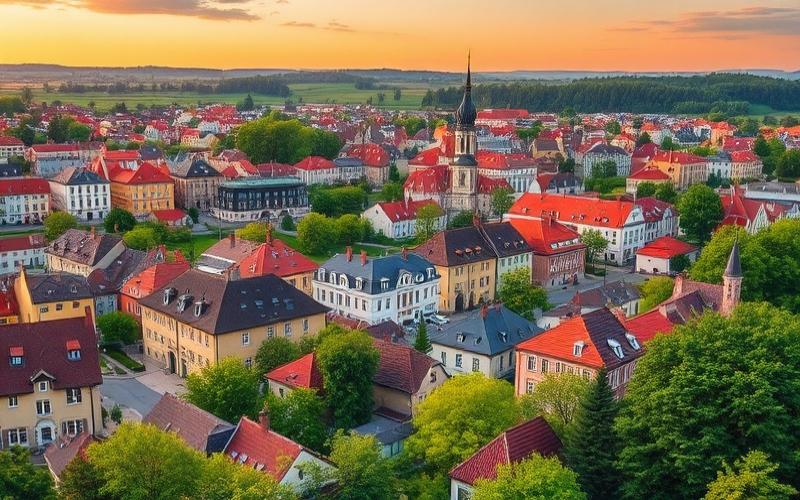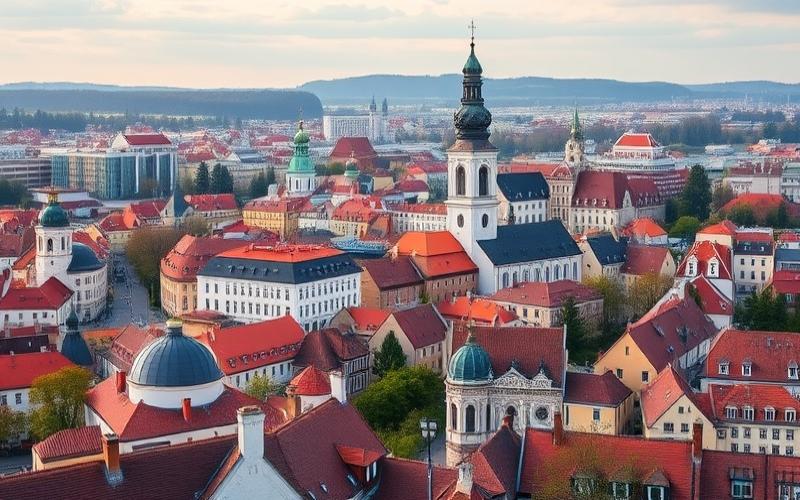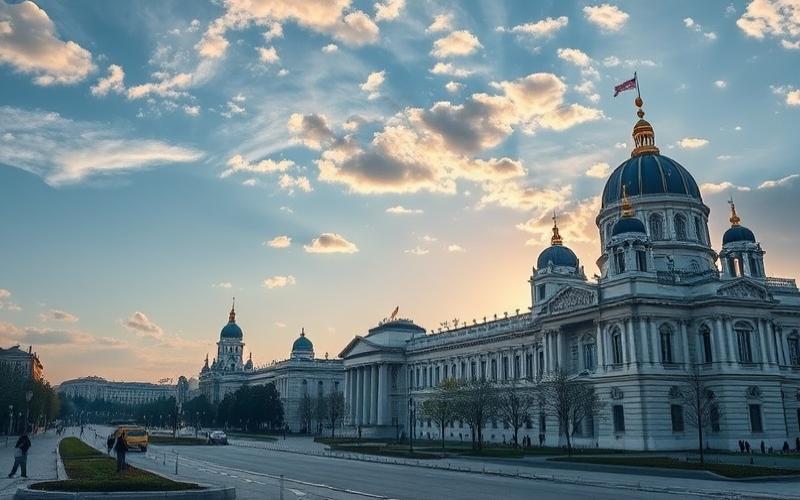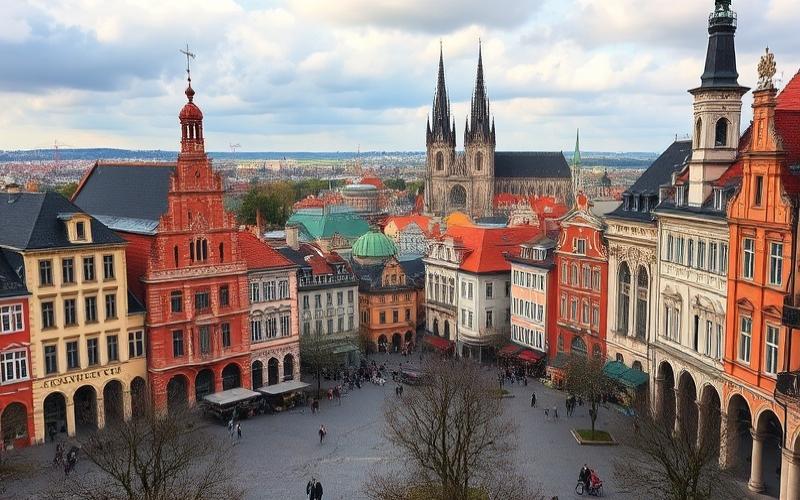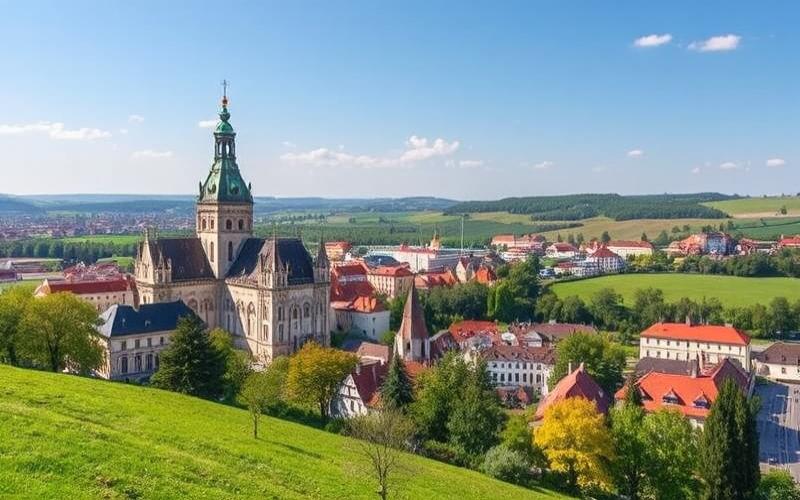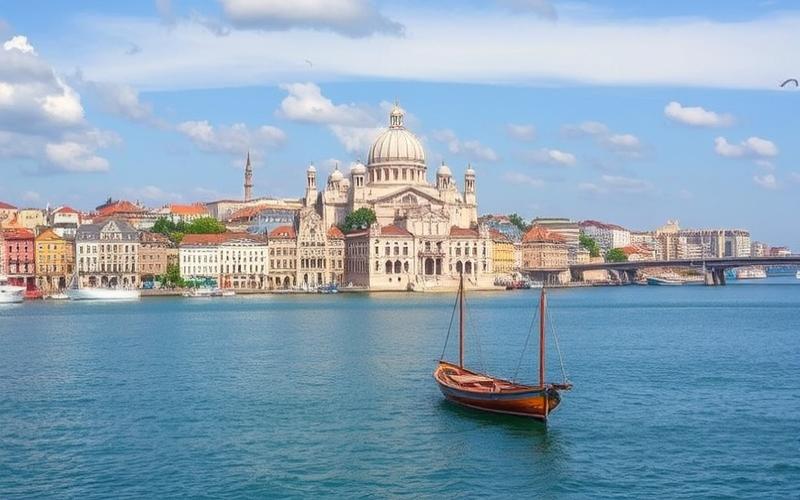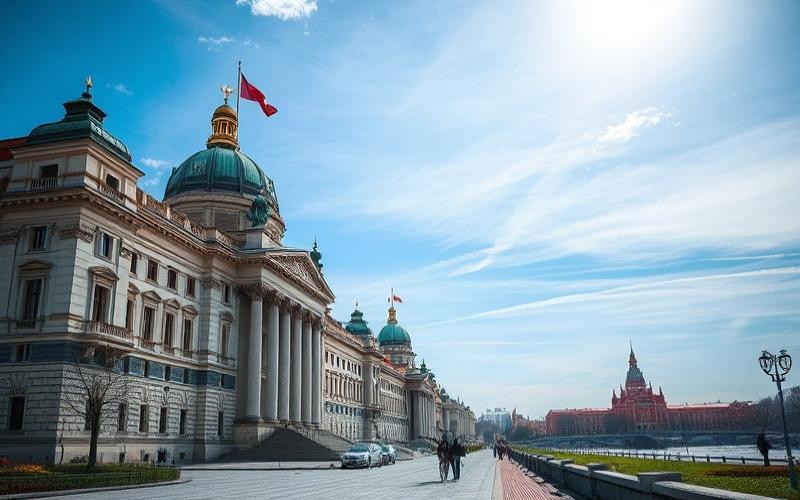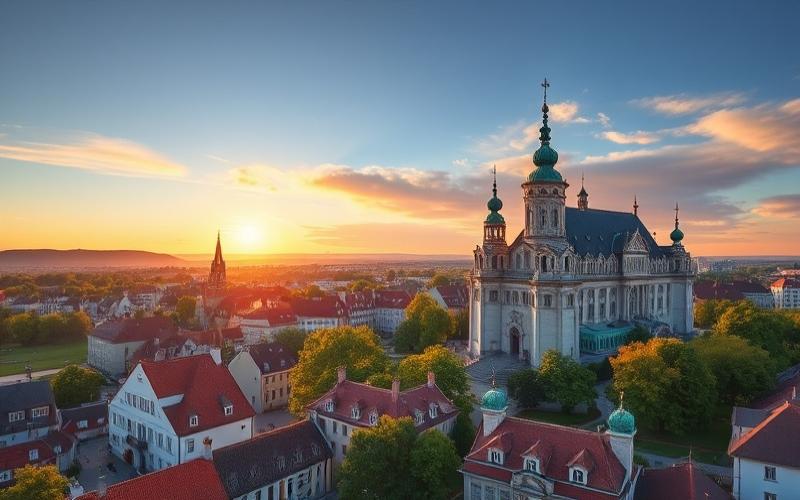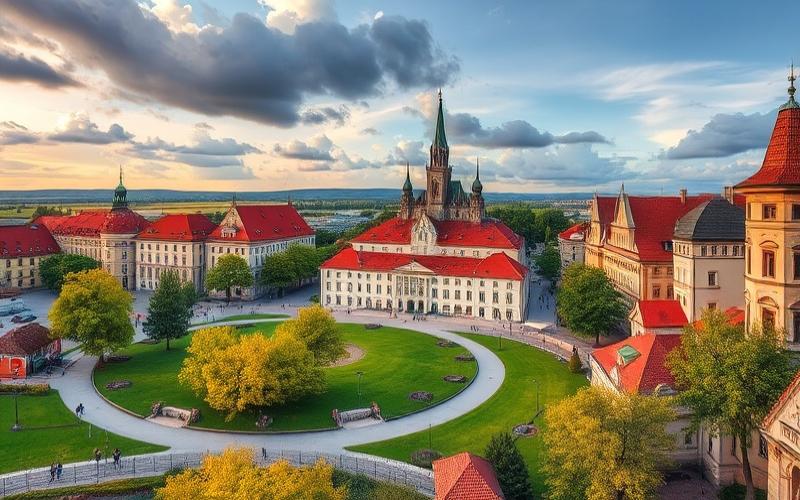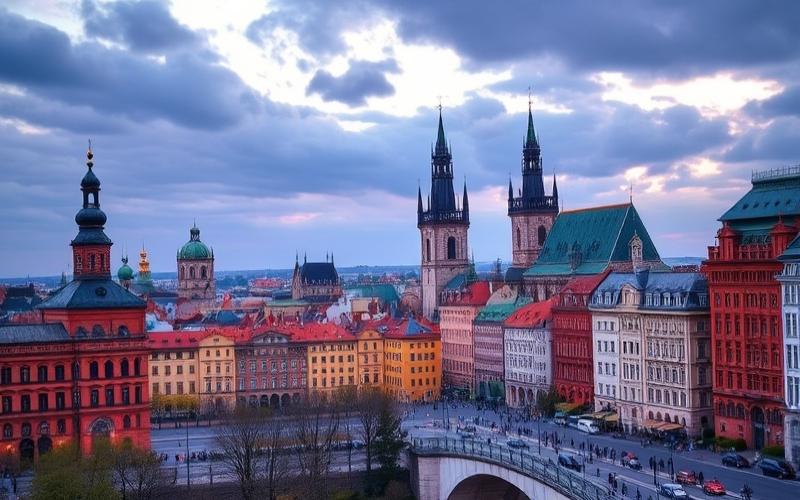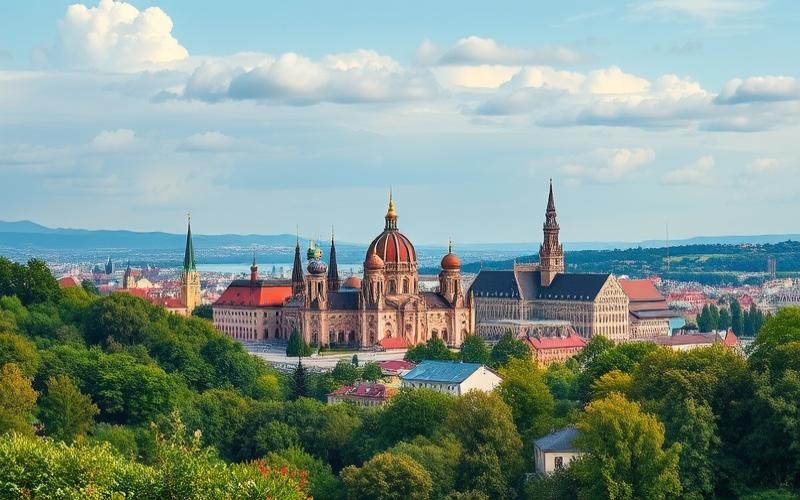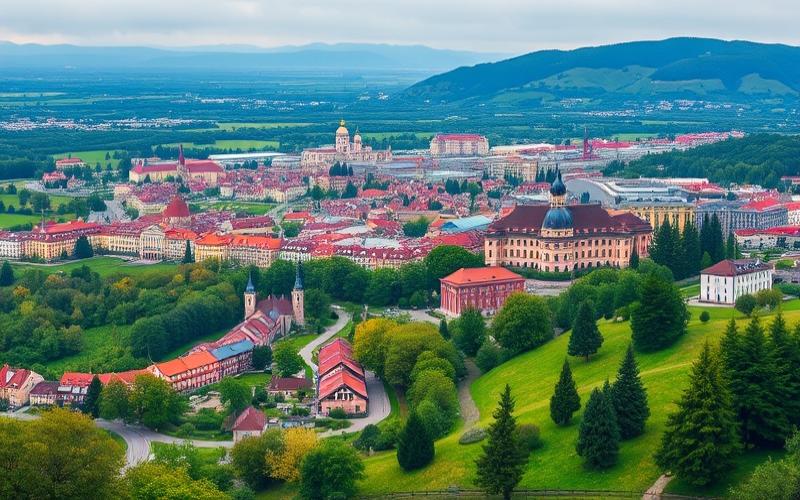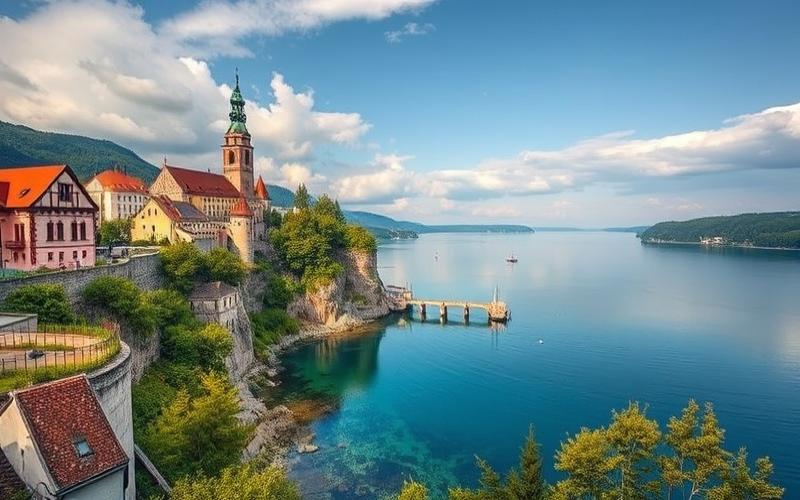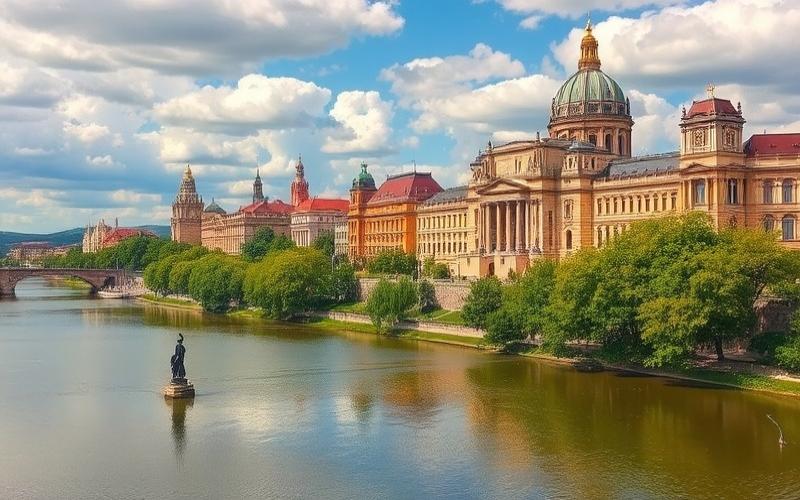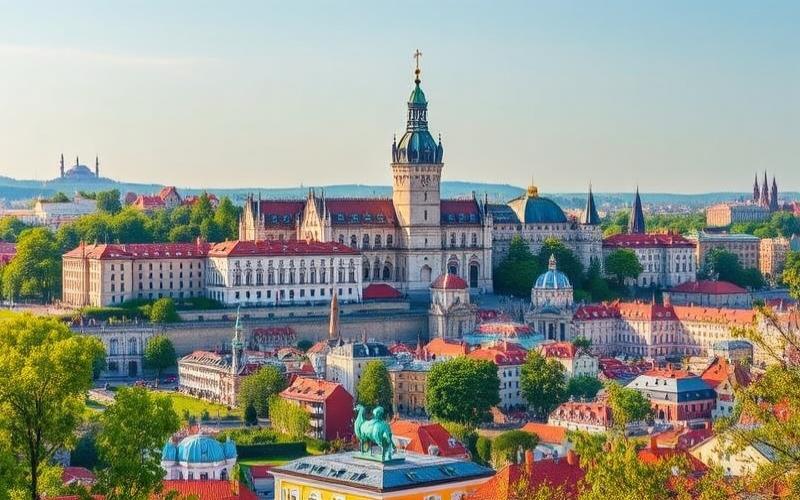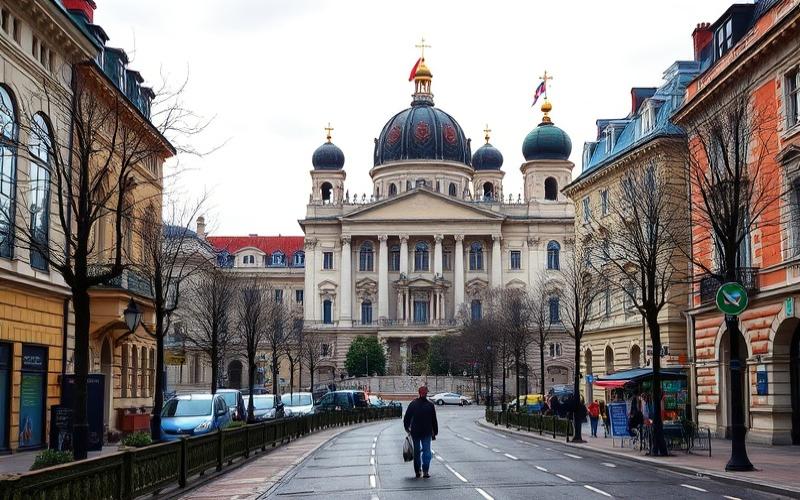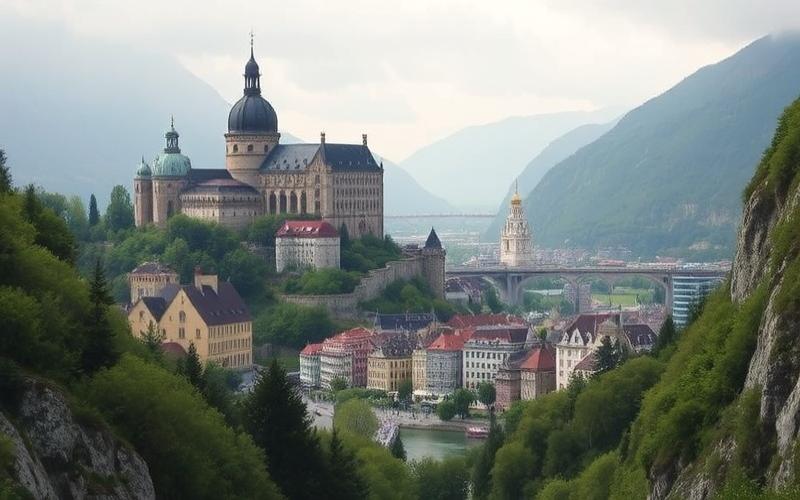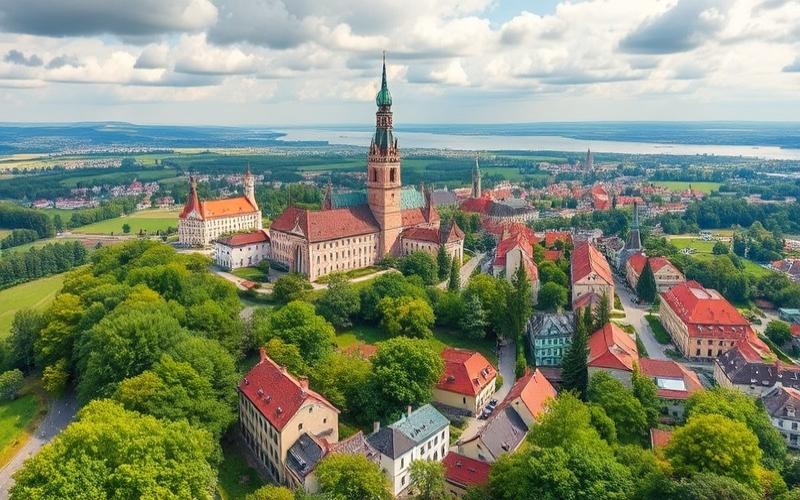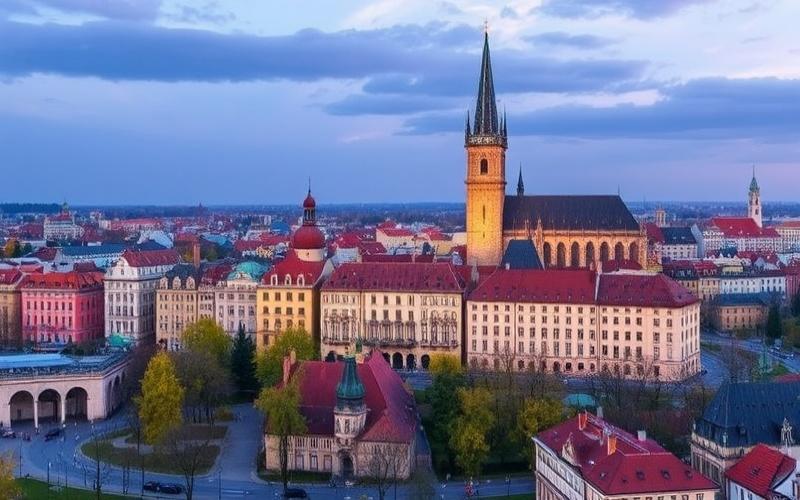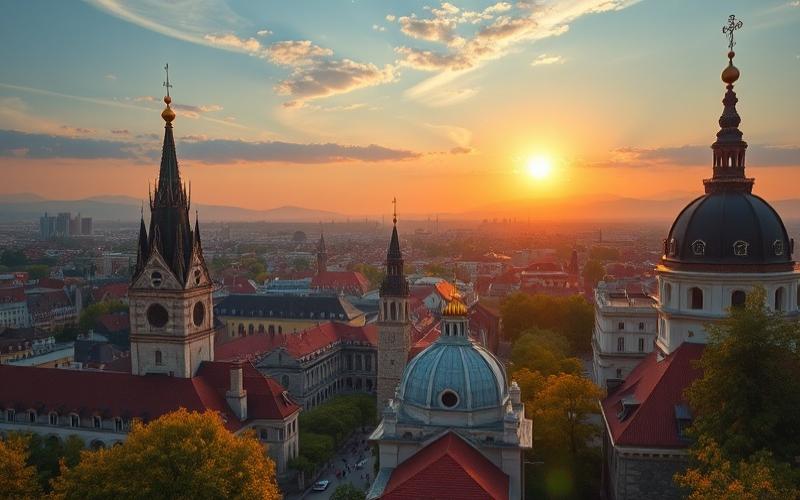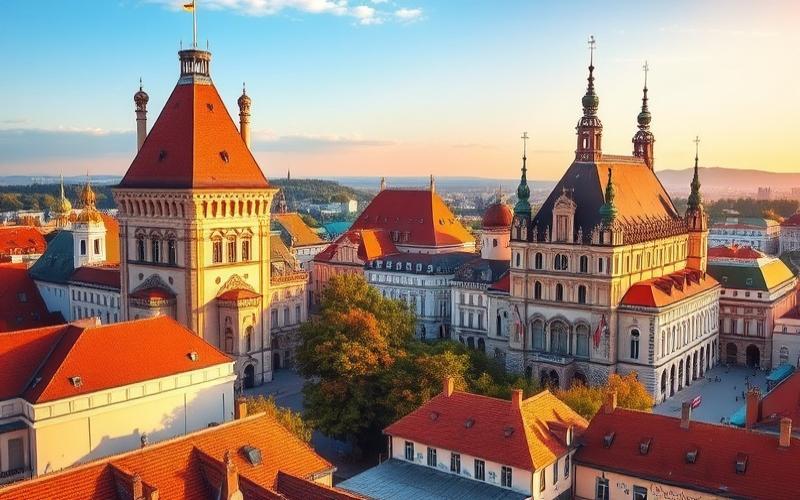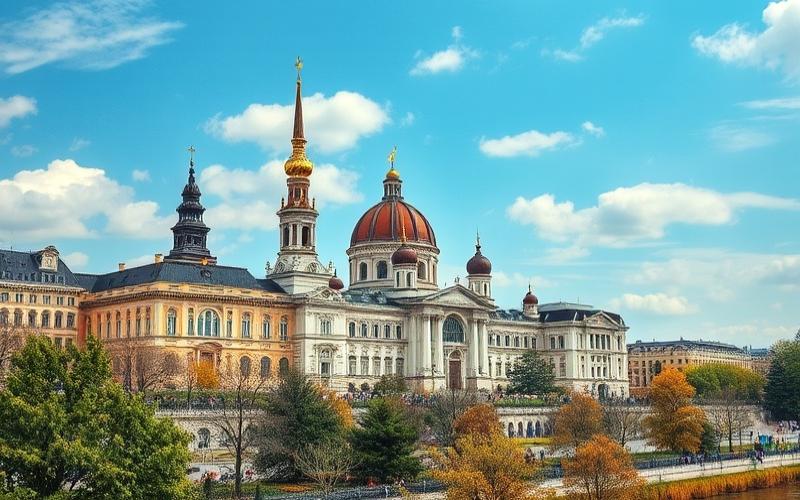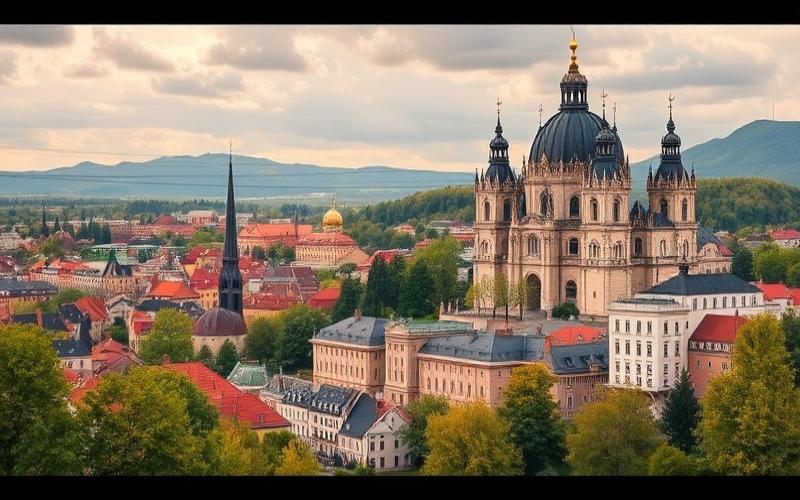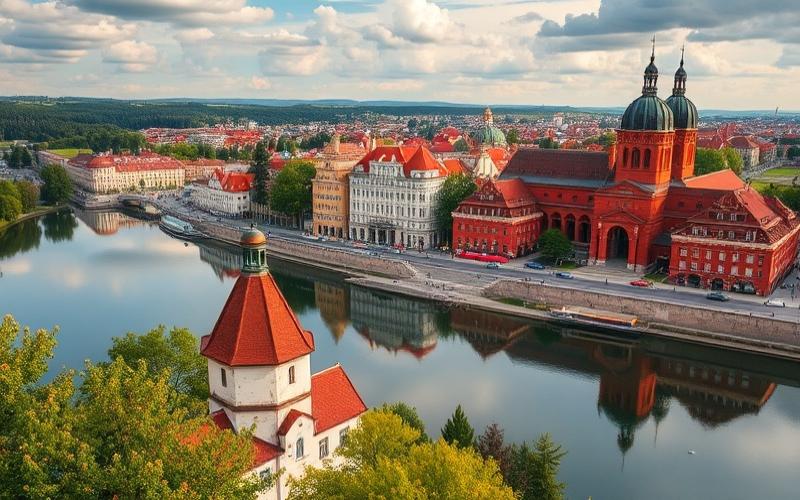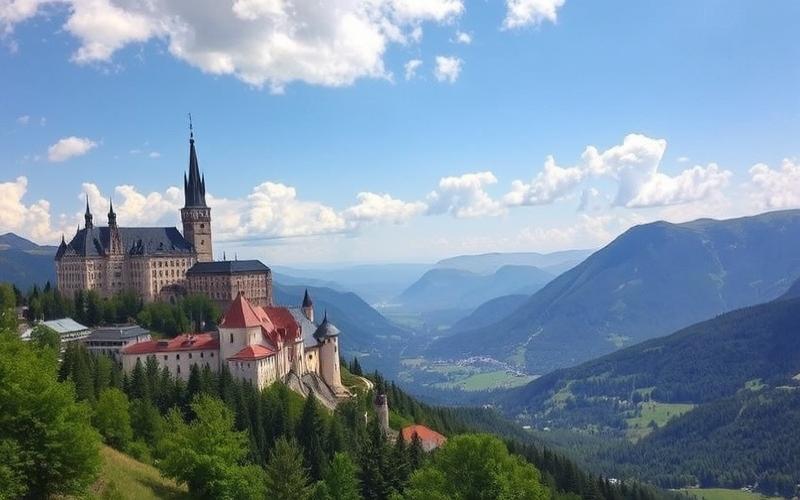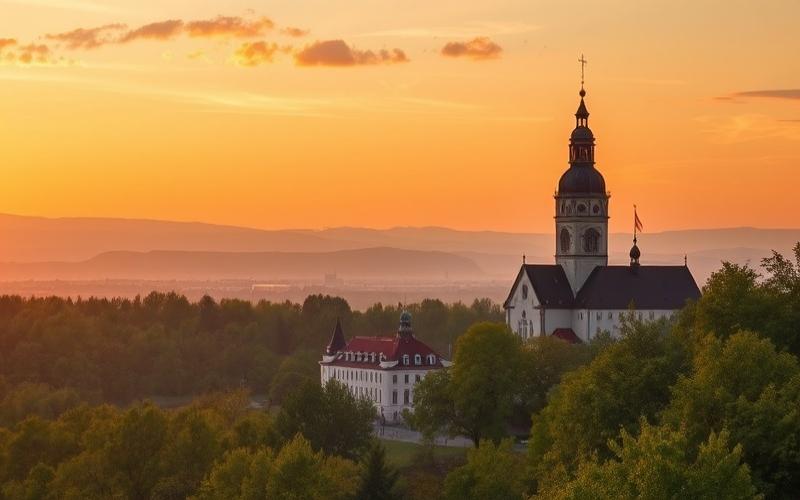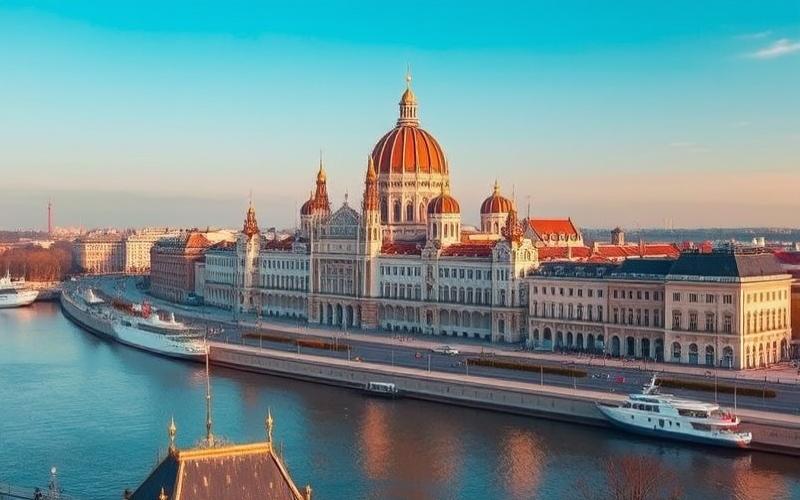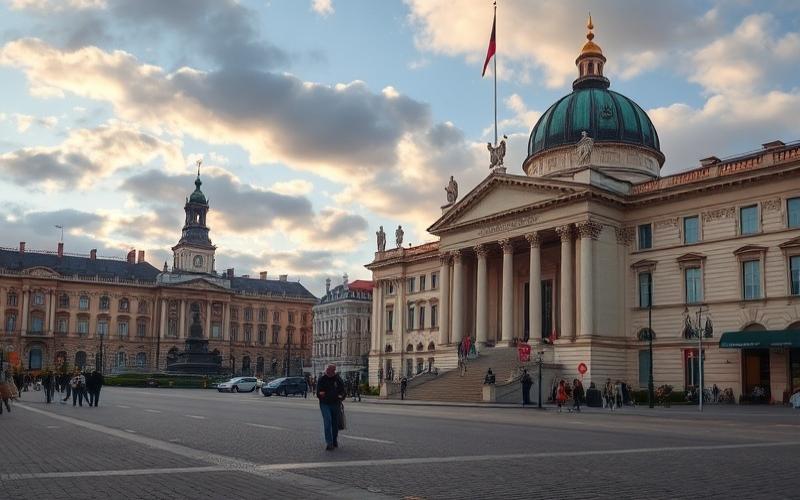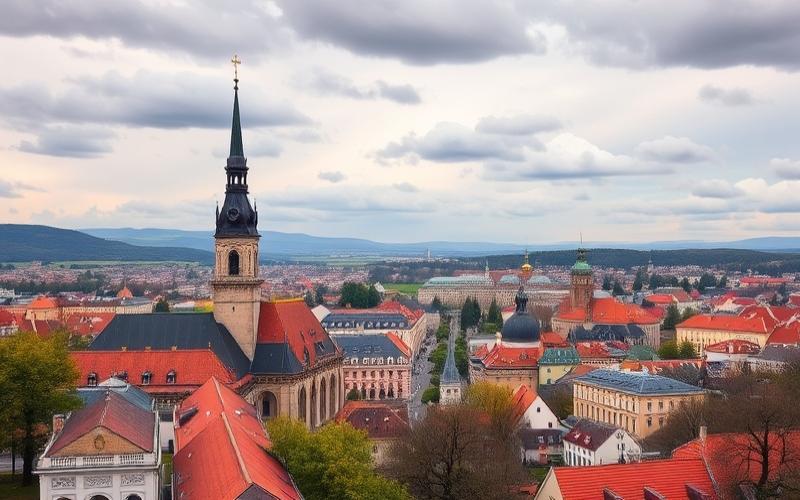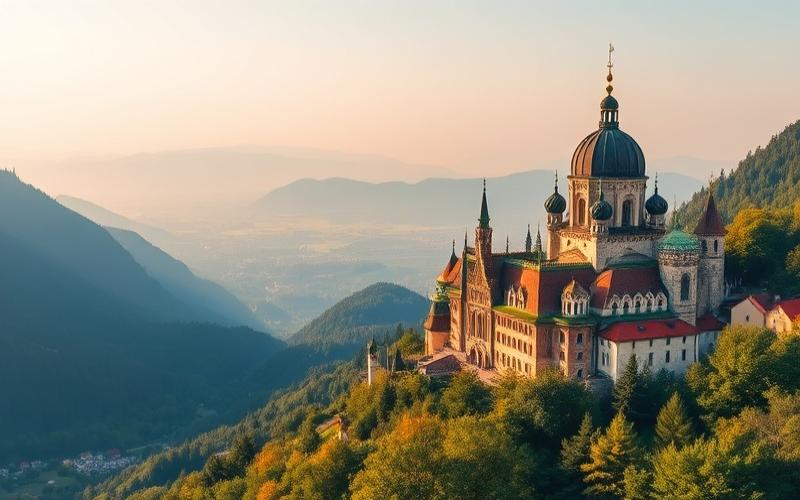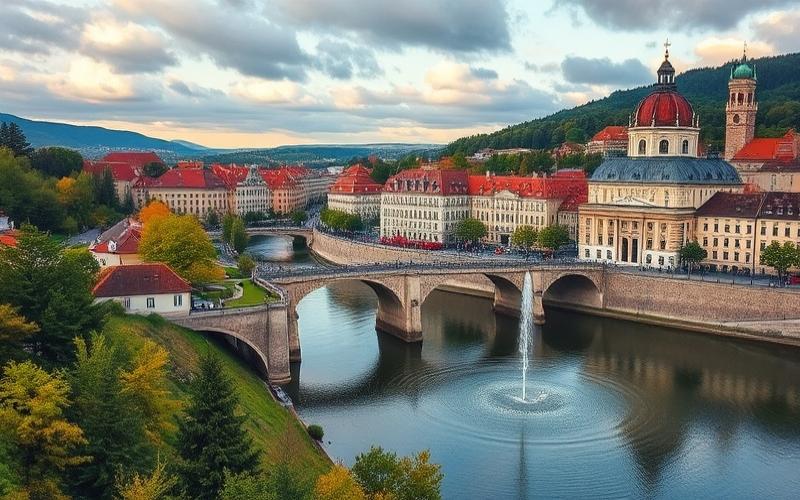
 Published on and written by Cyril Jarnias
Published on and written by Cyril Jarnias
In recent years, Poland has distinguished itself through the rise of gated residences, becoming a haven for many expatriates seeking a peaceful and modern living environment. The combination of cutting-edge infrastructure and green neighborhoods attracts families and professionals in search of security and comfort.
These residences, often located near major economic and cultural centers, offer privileged access to a blend of Polish traditions and metropolitan dynamism.
Analyzing this phenomenon, it becomes clear that the growing popularity of these homes not only meets international demand but also reflects a shift in local residential aspirations.
The Rising Popularity of Gated Residences in Poland
Gated residences have experienced rapid growth in Poland in recent years, driven by a combination of economic, sociocultural, and security factors.
Economic Reasons
- Continuous rise in real estate prices: the housing index reached a record 213.20 points in the first quarter of 2025 compared to 97.15 points in 2014.
- High cost of housing: over 60% of Poles allocate more than 30% of their monthly budget to housing.
- Growing supply of new apartments for rent or purchase in major cities.
| Year | Number of Gated Residences | Available Units |
|---|---|---|
| 2016 | 540 | – |
| 2022 | 972 | 81,170 |
| 2023 | 1,286 | – |
| Forecast end of 2026 | >1,300 | ~128,235 |
Sociocultural Reasons
- Urban modernization and the appeal of Polish metropolises for expatriates (Warsaw, Krakow, Wrocław).
- Growing desire for access to a secure environment and integrated services (concierge, enclosed green spaces).
- Lifestyle changes: seeking an international and cosmopolitan environment.
- For specific groups like seniors or expatriate families: adaptation to specific expectations (accessibility for people with reduced mobility, enhanced surveillance).
Security Factors
Concerns about urban security related to the perception of a relative increase in petty crime or burglaries in certain urban areas.
Active search by expatriates—particularly those from Western Europe or Asia—for closed neighborhoods (“gated communities”) offering video surveillance, access control, and permanent security personnel.
Changing Preferences Among Expatriates
- Now prefer:
- Recent residences with enhanced security
- Immediate proximity to major public transportation
- On-site multilingual services
“We chose a gated residence because it reminds us of what we had in France. The children play outside without worry. It has become the norm among my foreign colleagues.”
Testimony from a French resident in Warsaw
Modern Urban Developments & Role of Developers
Real estate developers are quickly adapting:
- Increase in high-end projects targeting international clientele
- Systematic integration: state-of-the-art video surveillance, private underground parking, connected common areas
- Enhanced communication about the sense of community offered to newcomers
- Major real estate brands adapt their international standards to local Polish requirements.
- Increased investment in modern architectural design to attract local upper-middle classes and foreigners.
Impact on the Polish Real Estate Market & Expatriate Community
| Main Effect | Real Estate Market | Expatriate Community |
|---|---|---|
| Rising prices in segment | Increased segmentation between standard and premium housing | Easier access to suitable housing |
| Rental dynamics | Leading role of private sector / institutional investors | Promotes long-term settlement |
| Urban transformation | Accelerated development of modernized peripheral neighborhoods | Creation of international microcosms |
Testimonies converge towards overall satisfaction due to increased comfort but sometimes mention a certain social isolation from the rest of the local population.
The rapid rise of gated residences is profoundly shaping the Polish urban ecosystem while meeting the evolving needs of both local and international residents
Good to Know:
The growing popularity of gated residences in Poland is explained by a confluence of economic, sociocultural, and security factors. In recent years, Poland has seen a 20% increase in investments in secured properties, driven by heightened demand for quality housing. Faced with an influx of expatriates, attracted by a dynamic job market and an appealing cost of living, preferences have shifted towards residences offering modern amenities and enhanced security. Real estate developers have responded to this demand by developing modern residential complexes equipped with advanced security systems, tailored to the expectations of expatriates seeking comfort and tranquility. These developments have transformed the Polish real estate market, increasing property prices in sought-after urban areas. Expatriates living in these residences testify to their regained peace of mind, emphasizing the importance of security in their housing choices.
Factors Influencing the Preference for Guarded Residences
Expatriates predominantly choose guarded residences in Poland for reasons of security, peace of mind, and additional services. This choice is reinforced by the perception of risk in certain urban regions, as well as cultural influences related to their past experiences in other countries.
Main Factors Influencing the Preference for Guarded Residences:
| Factor | Description |
|---|---|
| Security | Presence of surveillance systems (cameras, digital access control), on-site personnel 24/7 |
| Peace of Mind | Reassuring protection for those living far from their home country |
| Additional Services | Regular maintenance, sports facilities (pool, fitness), concierge, emergency management |
| Risk Perception | Increased concern about urban crime or local instability |
Social and Cultural Aspects:
“Increased concerns about personal safety… are motivated by international geopolitical instability and the search for enhanced protection.”
Recent Statistics (if available):
Testimonies/Expert Opinions:
Residential security experts emphasize that “the growing choice for this type of housing is mainly explained by a marked desire among wealthy foreign expatriates: to protect their family from the unexpected.”
Influential Economic Trends:
Favorable Government Policies:
The Polish legal framework remains open to foreign real estate investments through various schemes allowing for extended legal stay associated with ownership or long-term rental in these protected areas.
Summary List:
- Continuous surveillance
- Strict access control
- Continuous human presence
- Reduced stress related to the feeling of insecurity
- Easier integration thanks to the international setting
- Multilingual concierge
- Common spaces maintained daily
The combination between objective fear (local risk) and subjective expectations (past experience elsewhere) strongly structures this preference among expatriates settled in Poland.
Good to Know:
Expatriates in Poland often favor guarded residences primarily for reasons of security and peace of mind, due to an increased perception of risk in certain urban areas; recent statistics suggest a 15% increase in criminal incidents in some major Polish cities. These complexes offer additional services such as wellness clubs or coworking spaces that enhance the appeal for those accustomed to the comfort and security of their home country. Compared to other European countries, Poland offers these residences at often more competitive costs, positively influencing acquisition or rental decisions. Furthermore, the prior experiences of expatriates in high-risk countries encourage them to seek housing where security is a priority. Beyond security considerations, experts like Jan Kowalski in secured residential note that cultural influences such as the desire for a close-knit community also contribute to this trend. Finally, incentives from the Polish government, such as tax reductions on housing meeting security standards, encourage the growth of these secured residences, aligning with the current economic concerns of expatriates seeking to maximize the value of their investments.
Secure Neighborhoods: An Attraction for Expatriates
Expatriates favor secure neighborhoods in Poland primarily to ensure the tranquility of their daily lives, the protection of their families, and the preservation of their property. This search for security is explained by the desire to integrate into a stable environment, where police presence is visible, crime rates are low, and surveillance measures (security personnel, cameras) are abundant.
Quality of Life: Secure Neighborhoods vs Other Residences
| Criterion | Secure Neighborhoods | Other Types of Residences |
| Security | Very high (surveillance, police) | Medium to variable (depending on location) |
| Infrastructure | Modern, numerous | Sometimes limited or outdated |
| Green Spaces | Present and well-maintained | Less frequent or less accessible |
| Community | Cosmopolitan, often international | More local, sometimes less integrated |
| Rent | Higher | More affordable |
In these neighborhoods, expatriates benefit from a superior quality of life: calm environment, access to green spaces, cleanliness, and a reinforced sense of international community.
Infrastructure and Services Attractive to Expatriates
Polish Cities and Neighborhoods Popular Among Expatriates
Expatriate Testimonies
“We chose Wilanów for the tranquility, the proximity to the international school, and the sense of security we felt upon arrival. Our children can play outside with confidence.”
“In Mokotów, neighborhood life is pleasant, with many parks and cafes. We feel integrated thanks to the diversity of the community.”
Economic and Social Implications
Key Takeaway:
Secure neighborhoods in Poland offer an attractive living environment, enhanced security, and infrastructure adapted to the needs of expatriates, but their development profoundly influences the economic and social fabric of the cities where they are established.
Good to Know:
In Poland, secure neighborhoods are increasingly attracting expatriates seeking a superior quality of life, combining enhanced security with access to modern infrastructure. These residential areas offer not only peace of mind through the presence of advanced surveillance systems and 24/7 security services but also amenities such as renowned international schools, developed shopping centers, and attractive sports and cultural facilities. Cities like Warsaw and Krakow are particularly popular for these residences, due to their economic dynamism and rich cultural life. Nathan, an American expatriate living in Warsaw, testifies that “living in a secure neighborhood has transformed our experience in Poland, offering our family a balanced and comfortable living environment.” However, the emergence of these neighborhoods has implications on the real estate market, often responsible for price increases, and raises questions about social segregation, thereby influencing the local economy and the cohesion of traditional communities.
Premium Residential Services: A Standard in Closed Complexes
Closed complexes in Poland are increasingly integrating premium residential services to attract a demanding expatriate clientele, seeking both comfort, security, and quality of life. These residences now offer amenities that were once considered luxurious but are gradually becoming the norm in the Polish high-end market.
Premium Residential Services Generally Offered:
- Modern gyms
- Spas with sauna and steam room
- Dedicated spaces for yoga or meditation
- Landscaped private gardens
- Heated indoor or outdoor pools
- Children’s play areas and common lounges
| Service | Example of Integration in a Polish Complex |
|---|---|
| Concierge | Access to administrative and logistical services |
| Security | Digitized access control, continuous human presence |
| Gym & Spa | Included membership to on-site sports facilities |
| Private Garden | Landscaped park reserved for residents |
| Pool | Heated indoor pool accessible year-round |
Renowned Examples of Closed Complexes in Poland:
Expatriate Testimonies on the Impact of Premium Services:
“The indoor pool and spa really make a difference after a stressful day. The concierge service helped me upon arrival with all the local administrative procedures.”
“I feel much safer here than in a standard apartment; my children can play outside without worry thanks to the enclosed private garden.”
Response to Specific Expatriate Expectations:
Expatriates particularly value:
Comparison with International Trends:
Similar models are observable in Dubai or certain European capitals like Berlin or Madrid:
In this growing international competitive context to attract qualified foreign talent, these offerings now position certain Polish neighborhoods as regional references in premium residential hospitality for expatriates.
Services such as 24/7 concierge—once exceptional—are gradually becoming a decisive criterion in real estate choice among the demanding international public.
Good to Know:
In Poland, closed complexes have adopted premium residential services as a standard to attract expatriates, offering amenities such as 24/7 concierge, wellness facilities including gyms and spas, as well as private gardens and pools. Meeting high expectations for comfort and security, these services are similar to those in countries like France and Germany. Renowned complexes like Zlota 44 in Warsaw stand out with their infinity pool and children’s playground. Expatriates testify to their satisfaction regarding the improved quality of life, emphasizing the importance of these services in their decision to settle there, turning needs into reality and strengthening the sense of community.
Disclaimer: The information provided on this website is for informational purposes only and does not constitute financial, legal, or professional advice. We encourage you to consult qualified experts before making any investment, real estate, or expatriation decisions. Although we strive to maintain up-to-date and accurate information, we do not guarantee the completeness, accuracy, or timeliness of the proposed content. As investment and expatriation involve risks, we disclaim any liability for potential losses or damages arising from the use of this site. Your use of this site confirms your acceptance of these terms and your understanding of the associated risks.

